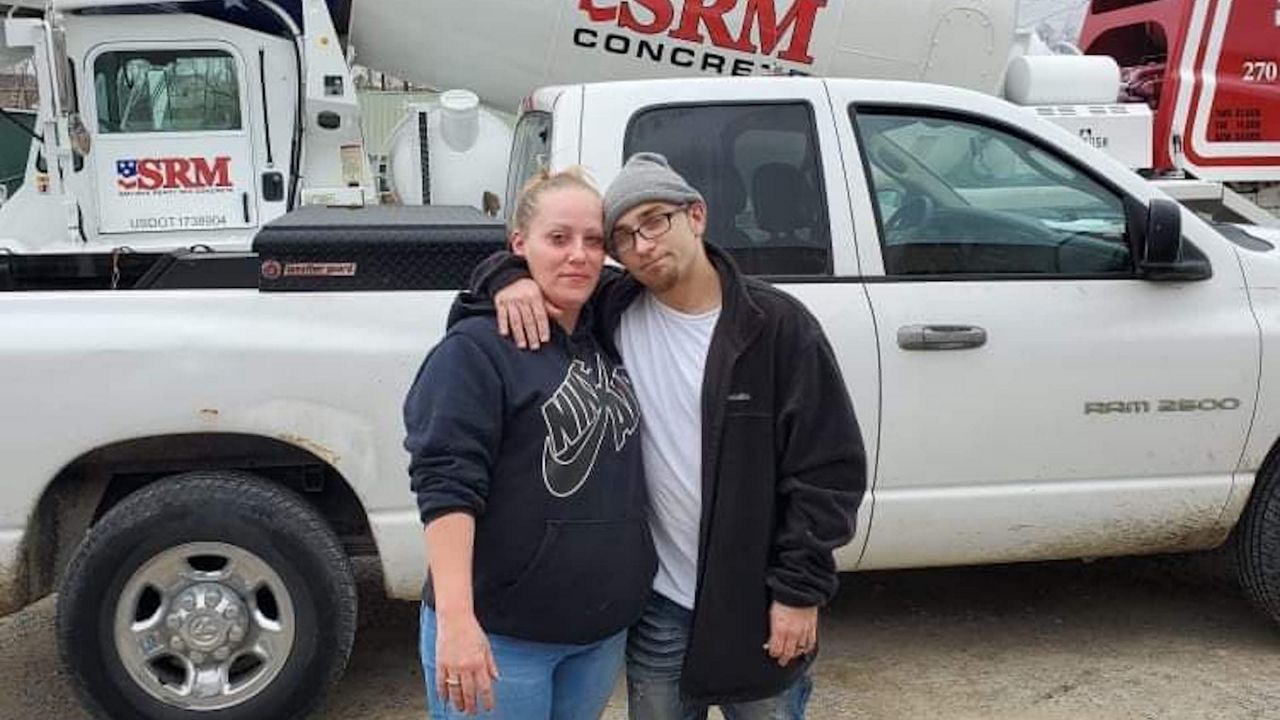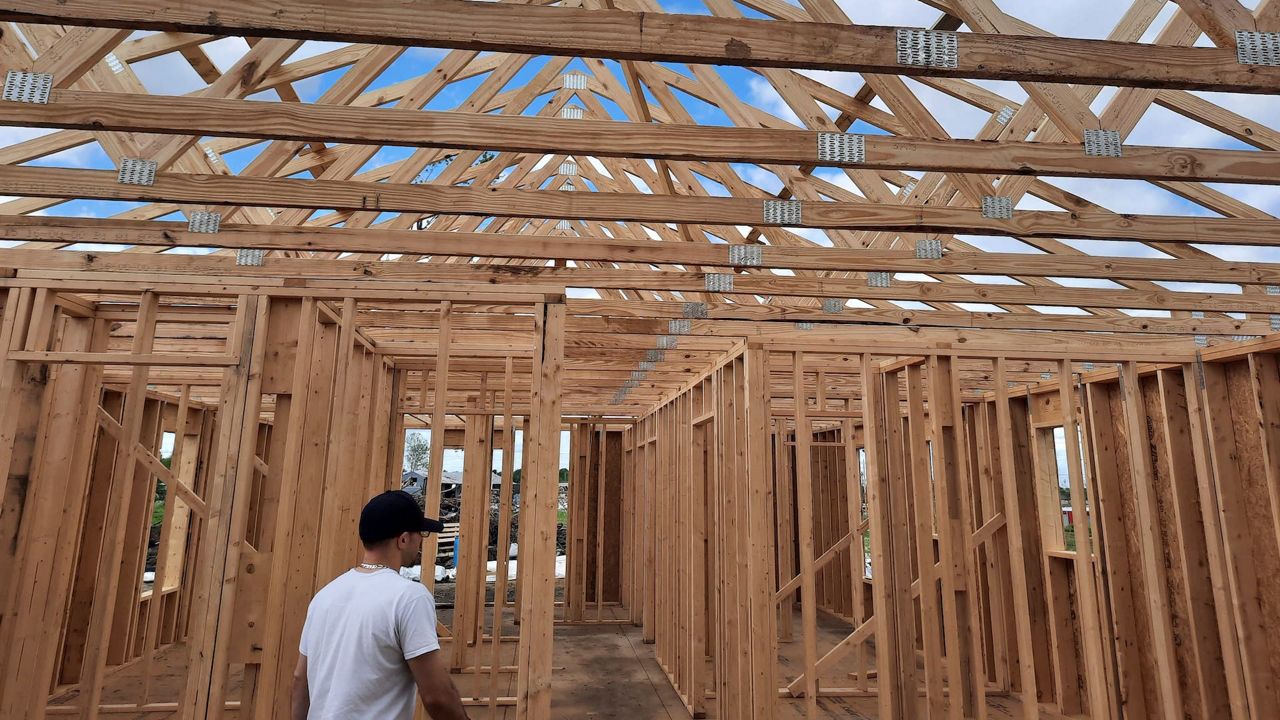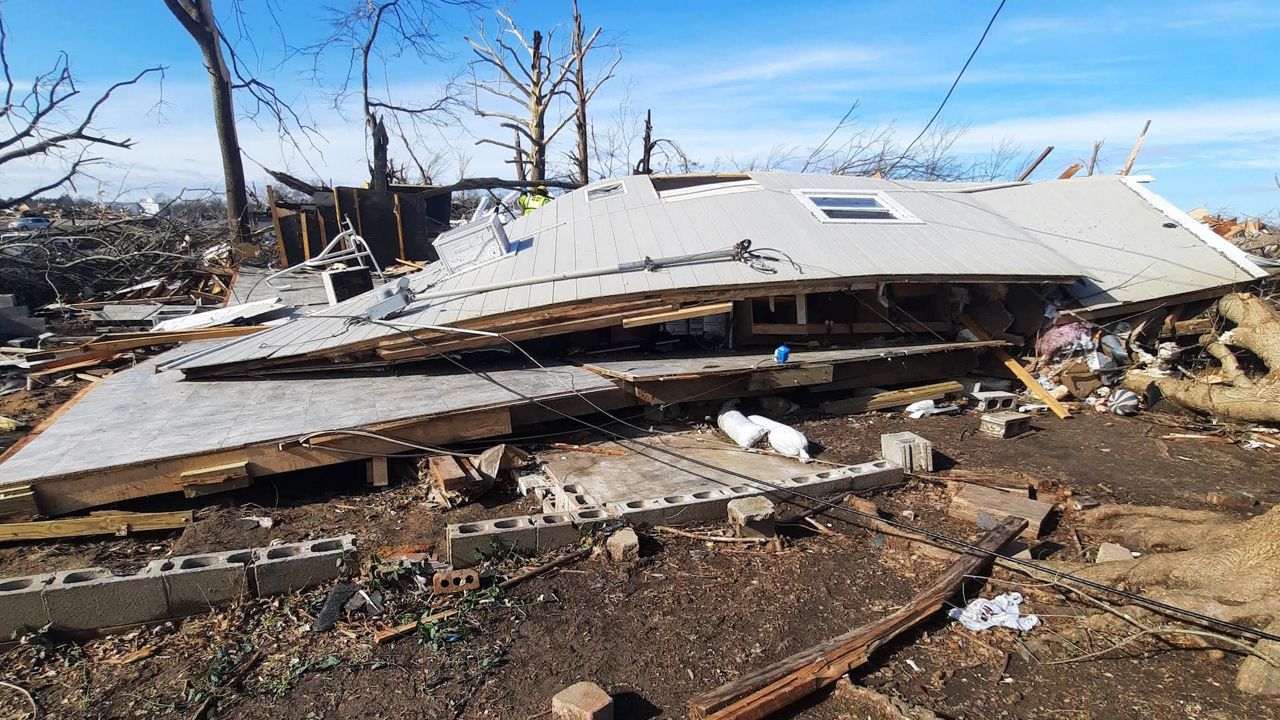LOUISVILLE, Ky. — Terra Utley, 32, and Jeremiah Barker, 37, were only lifted off the ground for a few seconds last December when a tornado ripped through their Mayfield, Ky., home, but the deadly storm set them back down into a world that had changed forever.
The catastrophic storm that took 81 lives in western Kentucky took their house, their vehicles, and briefly, one of their pets. Then, the struggles they experienced in the aftermath took some of their faith in a system that promised to help. Now, six months after the tornadoes have touched down, the attention has faded and Barker said many people in Mayfield feel forgotten.
“I think a lot of people have just given up hope,” he said.

For Utley and Barker, the difficulty of getting help started immediately after the tornado. Despite an outpouring of promises, they mostly hit roadblocks. The first came courtesy of the Federal Emergency Management Association (FEMA), which “pretty much said we were screwed because we didn’t own the house,” Utley said.
The couple was renting to own the home, which was turned into a pile of rubble, and because of a misunderstanding with its owner, they were uninsured. This led to complications with FEMA, but Utley continued to pursue assistance.
“I’ve appealed four different times,” she said. When she seeks advice on what to do next, she’s told to resubmit paperwork. “I work a full-time job. My fiance works a full-time job. We have five children and five dogs. We don’t have time to keep submitting paperwork.”
Immediately after the storm, they stayed with Utley’s brother-in-law on another side of town. Then, she and Barker benefited from the generosity of a woman in Georgia who sent the family a camper to serve as a temporary home. It was tight quarters for the family, but “we had somewhere that we could call our own for a little while,” Utley said.
Let down by FEMA, the family found relief in the generosity of a stranger and that soon became a pattern. When institutions failed them, individuals stepped in. Utley can still rattle off the names of organizations that provided help when her family needed it. There was the First United Methodist Church, the Unity Missionary Baptist Church, Seven Oaks Church of Christ, and the Eagles Club.
“They didn’t have to help us,” Utley said. “These churches are going into their own money. They didn’t get donations. They didn’t get people sending them stuff to help.”
Meanwhile, the Team Western Kentucky Tornado Relief Fund brought in more than $52 million. As of Thursday, it has distributed $26 million for funeral expenses and uninsured homeowners, according to the governor’s office. But while the state-run fund still has $26 million in it, Utley is getting help buying trash bags and laundry detergent.
Barker said that’s not what people who were donating money in the days after the tornado would have wanted.
“When people around the world were willing to send donations, they were told to send it all to one place,” he said. “Now here’s all the money in one place that didn’t get distributed to the people. A lot more would have been helped if donations weren’t sent to one pile of money.”
In an update on the tornado recovery Thursday, the governor's office noted that the fund was meant to "supplement the recovery and relief efforts." Included in the $26 million spent from the fund so far is $16 million that's gone to groups building new homes in the area, including Homes and Hope Kentucky. That organization is currently building a home for Utley and Barker.
Asked for comment on Utley and Barker's issues, Kristin Voskuhl, a spokesperson for the Public Protection Cabinet said, "The Public Protection Cabinet worked with FEMA to determine storm survivor eligibility and relief payments. Upon being notified by Spectrum, the Kentucky Department for Emergency Management called and left a message for Ms. Utley to answer her questions and provide assistance.”
Utley and Barker have other theories about why some people in Mayfield have struggled to get what they needed after the storm. The tornadoes largely decimated a low-income part of town with a relatively large population of racial minorities. As help has come slowly, they’ve seen many leave Mayfield with no plans of returning. Others, in desperation, have turned to drugs. “The only thing that matters around here is who you know,” Barker said.

One person who Utley got to know in recent months is a woman named Jane Bright with Homes and Hope Kentucky. After the owner of their old home deeded the land it sat on to Utley and Barker, they were able to secure a commitment from the group to build them a new house.
“The only relief we’ve had during this entire thing is knowing that we’re going to have a home,” Utley said. “If we focus on everything that we’ve lost and everything we don’t have and everything we have to rebuild,” she said. “I’d be broken,” said Barker, finishing her thought.
Even with all the new homes and businesses being rebuilt in Mayfield, Utley and Barker said there’s still so much work left to do. But it goes far beyond the type of reconstruction that happens with two-by-fours and nail guns.
Barker wants to see more community events, especially for children, to ensure that the families who have been through so much can experience a morale boost.
“We can all be happy that we survived this tornado, and we can all be happy that they got a bunch of money to rebuild,” he said, “but if you don’t instill any hope into these adults and these kids, this community will be nothing in 10 years.”





